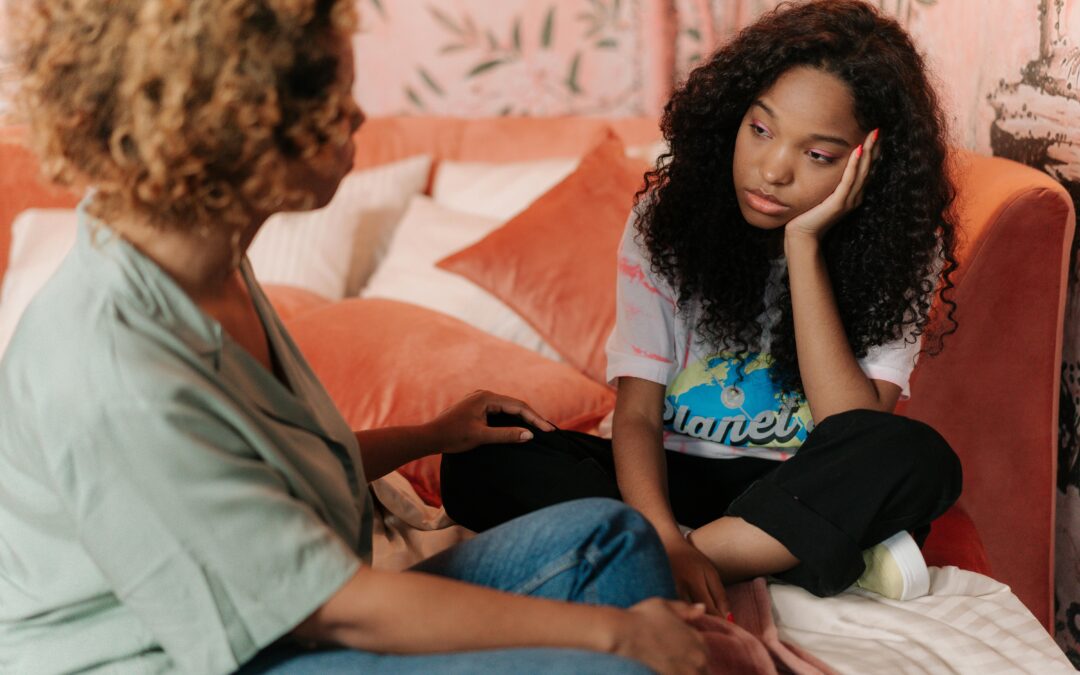Divorce impacts the whole family — not just the couple who decides to separate. For teens and tweens especially, the experience can stir up confusion, big feelings, and questions about identity, loyalty, and belonging. Even when the divorce is handled amicably, it can still feel like emotional whiplash for a young person.
That’s where therapy can make all the difference.
How Teens and Tweens with Divorced Parents Benefit from Therapy
1. A Safe, Neutral Space to Talk
One of the most common challenges for kids of divorced parents is figuring out where and how to talk about what they’re feeling — especially when those feelings involve one of their parents. Understandably, many parents want to be supportive, but it’s hard to be fully impartial when your child is hurting and the topic is your ex. Therapy gives tweens and teens a neutral, judgment-free zone where they don’t have to worry about upsetting anyone or being caught in the middle. With a therapist, they can explore what’s going on inside without walking on eggshells.
2. It’s Not Always Traumatic — But Sometimes It Is
Not every child experiences divorce as trauma. For some, it can even be a relief — especially if home life before the separation was tense or filled with conflict. Still, even in the best-case scenarios, there’s a shift. And when that shift includes things like custody changes, new homes, or stepparents, there’s a lot to process. Kids may not feel comfortable sharing their emotional truth with a parent — especially if they’re trying to protect that parent’s feelings. A therapist offers a compassionate ear, helping them unpack experiences they may not feel safe verbalizing at home.
3. Coping with Major Life Changes
Divorce almost always brings change — and for teens and tweens, change can feel overwhelming. Whether it’s moving between two homes, adjusting to new family dynamics, changing schools, or navigating the loss of their “normal,” these shifts can trigger anxiety, sadness, anger, and even behavioral changes. The routines and consistency that once felt grounding may suddenly be gone. Therapy can help kids learn how to adapt in healthy ways, build emotional resilience, and develop tools to cope with uncertainty and change — all while having a stable, supportive relationship with a therapist who understands.
4. People Pleasing Often Starts Here
Many children of divorce learn to become expert peacekeepers. They pick up on the tension, learn what not to say, and shape-shift to make things easier for the grown-ups around them. While this may help them survive the moment, it can lead to long-term people pleasing — where they lose touch with their own needs in favor of keeping others happy. Therapy helps teens recognize these patterns early and begin to build healthier boundaries, saving them years of burnout and resentment down the road.
5. Building Stronger, Healthier Relationships with Family
A therapist can also support your teen or tween in creating and maintaining healthy connections with both parents — and, when needed, with extended or blended family members too. Whether they’re struggling to adjust to a new stepparent, feeling torn between loyalty to one parent, or having trouble feeling seen in a new household dynamic, therapy provides tools to communicate, self-advocate, and stay grounded in their own truth.
6. Exploring Identity in a Divided Family
One of the more subtle challenges children of divorce face is figuring out who they are in the midst of two different homes, value systems, and parenting styles. And it’s not uncommon for kids to internalize criticisms one parent makes about the other — especially when they see themselves in both. Imagine hearing, “Your dad is so stubborn,” when you’ve just started noticing that same trait in yourself. That’s a heavy emotional load for a young person. Therapy gives them space to explore and embrace their full identity without shame or confusion.
At Beach Cities Psychotherapy, we understand how layered divorce can be for children and teens.
Our therapists create a supportive, honest, and empowering environment where young people can heal, grow, and thrive — not in spite of their family dynamics, but with the tools to navigate them with confidence.
Shannon Meena ACSW is experienced at helping tweens and teens navigate the myriad of stressors that come with growing up in a divorced family.
Reach out if you’d like to schedule a session.




